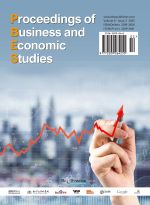Abstract
This study takes the panel data of 278 prefecture-level cities in China from 2011 to 2022 as samples, constructs a super-efficiency SBM model to measure urban energy-environment efficiency, uses the entropy method to synthesize the digital economy composite index, and introduces the green innovation index as a mediating variable. Breaking through the traditional analysis framework in the empirical method: Firstly, through the fixed-effects model and mediating-effect test, it reveals the direct impact of the digital economy on energy-environment efficiency and the transmission path of green innovation. Secondly, it divides the eastern, central, and western regions and low-carbon pilot cities for heterogeneity tests to identify the moderating effect of policy intervention. Thirdly, it strengthens the robustness of the conclusions by replacing the super-efficiency CCR model, shortening the sample period, and performing winsorization. The study finds that the digital economy significantly improves energy-environment efficiency through green technology innovation. These conclusions provide an empirical basis for optimizing the layout of digital infrastructure and improving the regional collaborative emission-reduction mechanism.
References
Wu H, Cheng C, 2024, The Impact of Digital Economy Development on Urban Energy Efficiency — An Empirical Analysis Based on 108 Cities in the Yangtze River Economic Belt. Journal of Xinyang Normal University (Philosophy and Social Sciences Edition), 44(05): 53–57.
Xia W, Ruan Z, Ma S, et al., 2025, Can the Digital Economy Enhance Carbon Emission Efficiency? Evidence from 269 Cities in China. International Review of Economics and Finance, 97: 103815.
Luo X, 2022, Research on the Impact of Digital Economy Development on Energy Utilization Efficiency, dissertation, Fuzhou University.
Gao W, Peng Y, Hu X, 2023, Research on the Impact of the Digital Economy on Urban Energy Conservation and Emission Reduction under the “Dual-carbon” Goals. Urban Problems, (03): 25–37.
Wang J, 2024, Research on the Impact of the Digital Economy Development of Prefecture-level Cities in China on Carbon Emissions, Dissertation, Shandong Normal University.
Wang J, Zhu J, Luo X, 2021, Measurement of the Development Level and Evolution of China’s Digital Economy. The Journal of Quantitative & Technical Economics, 38(07): 26–42.
Meng X, Zhu P, 2025, Research on the Effects and Mechanisms of Digital Infrastructure Driving Green Innovation based on the Policy Experiment of the “Broadband China” Strategy. Research on Economics and Management, 46(01): 90–108.
Zhu Q, Jin C, Li Z, 2025, Can the Integration of the Digital and Real Economies Promote the Synergistic Improvement of Industrial Pollution Reduction and Carbon Emission Reduction? — An Investigation Based on the Forward and Backward Linkages between the Information Industry and Industry. South China Journal of Economics, (02): 68–96.
Yang M, Liang Q, 2024, Analysis of the Correlation between the Spatial Spillover Effect of the Digital Economy and Urban Green Development. Journal of Xingtai University, 39(03): 51–56.
Qu H, Fan Q, Liu H, 2024, The Digital Economy and Green Economic Efficiency: Mechanisms and Spatial Spillovers. Journal of China University of Petroleum (Edition of Social Sciences), 40(05): 69–78.
Xue Y, Zhao H, Feng Y, 2024, Analysis of the Spatial Spillover Effect of the Digital Economy on Carbon Emissions. Journal of Nanjing University of Posts and Telecommunications (Social Science Edition), 26(05): 95–106.
Zuo X, Qian P, 2024, Research on the Impact of Digital Economy Development on Carbon Emission Reduction. Taxation and Economy, (05): 54–63.
Wen Z, Ye B, 2014, Analysis of Mediating Effects: Methodological and Model Developments. Advances in Psychological Science, 22(05): 731–745.
Shi D, Li S, 2020, Emission Trading System and Energy Utilization Efficiency Measurement and Empirical Analysis of Prefecture-level and Above Cities. China Industrial Economics, (09): 5–23.
Zhao T, Zhang Z, Liang S, 2020, Digital Economy, Entrepreneurial Activity, and High-quality Development-empirical Evidence from Chinese Cities. Management World, 36(10): 65–76.
